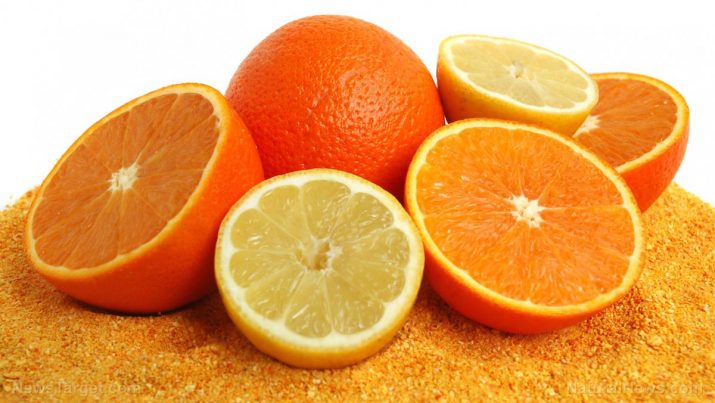
Flavones sources, health benefits and uses
Monday, September 11, 2017 by Jhoanna Robinson
http://www.naturalpedia.com/flavones-sources-health-benefits-and-uses.html

Flavones are naturally-occurring yellow phenols that are a subgroup of phytonutrients that make up one of several classes of flavonoids, or antioxidants, that can be found in herbs, fruits, and vegetables. They have three kinds, namely, apigenin and luteolin (which are both present in celery, parsley, horsetail, and thyme, among others) and tangeretin, which is found in oranges.
Medicinal uses for flavones
Since flavones are technically antioxidants, it is safe to say that they perform similar functions, which is to keep free radicals from harming the body by causing damage to otherwise healthy cells, leading to the development of cancer.
Flavones have cancer-fighting elements. They can inhibit the activities of carcinogenic tumors that cause breast, prostate, kidney, pulmonary, colon, lung, ovarian, and skin cancer and leukemia.
Flavones have diuretic and antiseptic properties.
Flavones can function as antihistamines. The body releases histamine during allergic reactions, and the chemical causes allergic symptoms such as itching, redness, sneezing, and swelling. Luteolin is a powerful antihistamine; it can soothe most people’s allergic reactions.
Flavones have anti-inflammatory properties. Inflammation is sometimes a good sign of health. It means that your body knows how to respond to infection, injury, irritation, or stress and is in the process of repairing the damage that it has endured. However, some inflammations are unnecessary. Those inflammations are what apigenin and luteolin seek to inhibit.
Flavones have antispasmodic properties. Apigenin can smooth muscle contractions.
Body systems supported by flavones
Flavones are good for the female reproductive system. They regulate estrogen release, which they make possible via the curbing of the productivity of aromatase, a key enzyme in the biosynthesis of estrogen. This function is a blessing, because high levels of estrogen can cause excessive weight gain, which can be a precursor to a whole slew of other health issues.
In fact, a study that was done in the Netherlands showed that the presence of flavones in women’s diets can even lower body mass index (BMI) of some patients.
Flavones are good for the cardiovascular system. Apigenin and luteolin, which are both found in flavones, help relax constricted blood vessels, which in turn won’t pressure the heart to pump blood harder than it has to.
Flavones are good for the circulatory system. They normalize the processes of the organs that are involved with the task of delivering blood and oxygen throughout different parts of the body.
Flavones are good for the immune system. Having a spotless immune system can make you disease-free all-year-round and can make you super resistant even against the toughest disease-causing bacteria and viruses.
Where to learn more
- 7 Reasons to Celebrate Celery
- Clove (Syzygium aromaticum), A common Food Spice that offers A Long List of Traditional Uses
- Who knew flavonoids from tea, berries and grapes protect against developing diabetes?
- Eat Foods with Fat Fighting Ingredients to Lose Weight and Increase Energy
- The best aromatase-inhibiting foods and herbs
Summary
Flavones are good for the female reproductive, cardiovascular, circulatory, and immune systems.
Flavones can function as antihistamines.
Flavones have diuretic, antiseptic, anti-inflammatory, and antispasmodic properties.
Sources include:
Tagged Under: Tags: flavones






